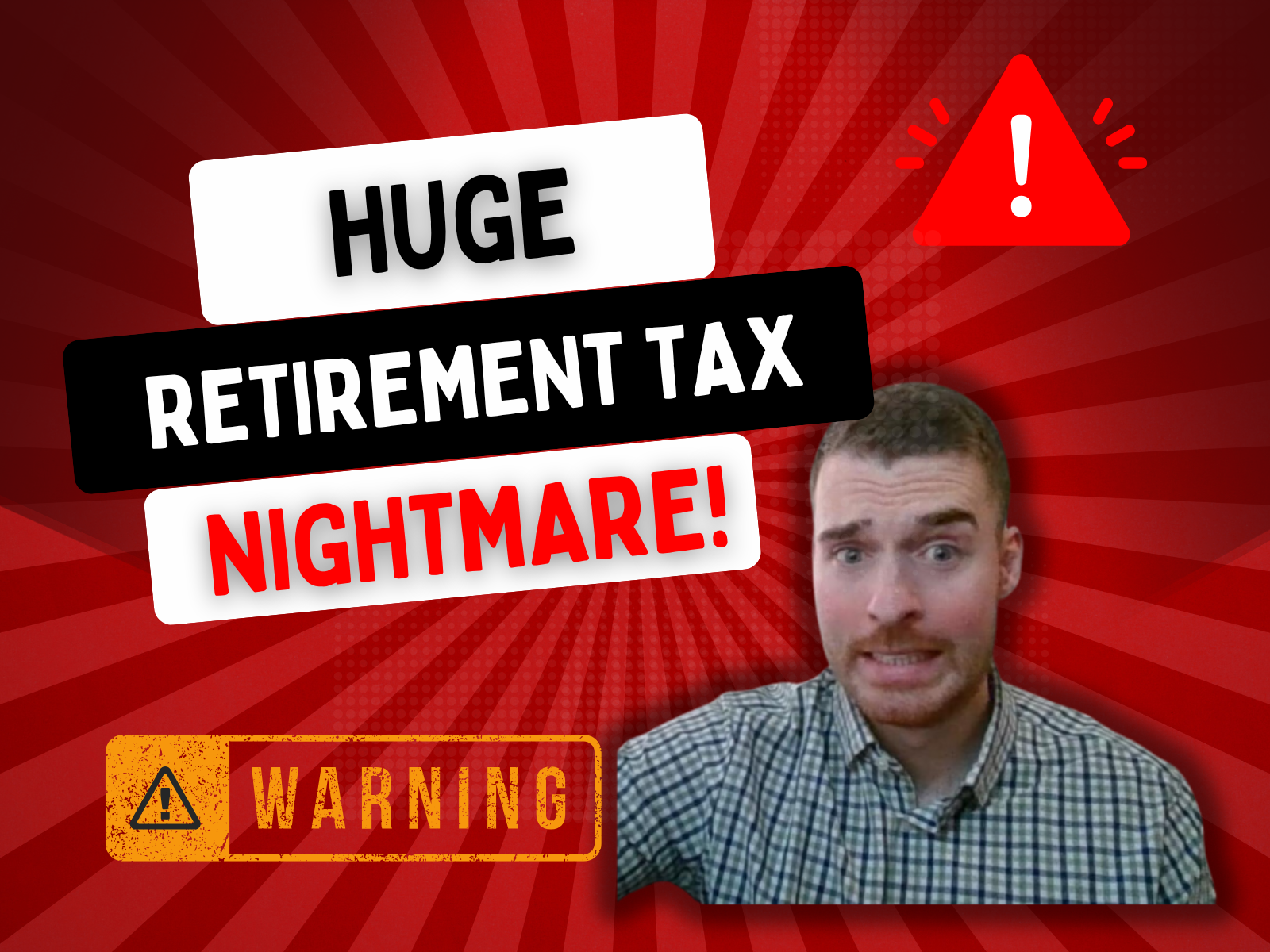Why Your Retirement Taxes Might Go Up—and What to Do
With retirement typically comes less taxes, right?
You likely receive less money from Social Security and your retirement income than during your highest earning years.
Let’s discuss why some people are often surprised to learn that your taxes in retirement may actually go up and not down.
The Common Misconception
Many people enter retirement with the assumption that their taxes will decrease. This belief is rooted in the idea that income typically decreases after you leave the workforce. While it’s true that you’re no longer earning a salary, the sources of income you rely on in retirement—like 401(k)s, IRAs, and Social Security—can still be taxable. Additionally, many retirees don’t factor in how withdrawals from pre-tax accounts and other income sources can push them into higher tax brackets.
The Role of Pre-Tax Retirement Accounts
Throughout your working years, you likely contributed to popular “pre-tax” retirement savings accounts like 401(k)s and traditional IRAs. These accounts allow you to defer taxes on your contributions and investment growth until you withdraw the funds in retirement. While this tax-deferral can be a great tool for building wealth and paying less tax in your peak earning years, it sets the stage for significant tax potential in your later years.
Once you reach age 73 (or 72 for those born before 1951), the IRS requires you to start taking Required Minimum Distributions (RMDs) from these accounts. The reason being that the IRS hasn’t collected their tax dollars on this money yet and have drawn a line in the sand saying enough is enough, we need our money!
RMDs are calculated based on your prior year account balances and life expectancy, and they must be withdrawn annually. The catch? These withdrawals are taxed as ordinary income. If your account has grown significantly over the years, your RMDs could be large enough to push you into higher tax brackets —even higher than what you were subject to in your working years.
How Social Security Benefits Get Taxed
Another factor that surprises retirees is the taxation of Social Security benefits. Depending on your “combined income”—a formula that includes your adjusted gross income (AGI), nontaxable interest, and half of your Social Security benefits—up to 85% of your Social Security benefits can become taxable. Large RMDs from pre-tax accounts can inflate your AGI, making it more likely that your Social Security benefits will be subject to taxation.
Medicare Premiums and IRMAA
High income in retirement doesn’t just affect your tax bill—it can also increase your Medicare premiums. The Income-Related Monthly Adjustment Amount (IRMAA) is a surcharge added to Medicare Part B and Part D premiums for individuals with higher income levels. Large RMDs can push your income above the IRMAA thresholds, leading to higher healthcare costs.
The Impact of Fewer Deductions
Another often-overlooked factor is the loss of certain deductions. In retirement, you’re less likely to have deductible expenses like mortgage interest or child-related credits. Without these deductions, your taxable income may appear higher, further contributing to your tax liability.
How to Mitigate the Tax Burden
While these tax traps might sound daunting, the good news is that there are strategies you can implement to reduce your tax burden in retirement. Here are a few to consider:
1. Roth Conversions: Converting some of your pre-tax retirement savings into a Roth IRA before you reach RMD age can be a smart move. Roth IRAs grow tax-free, and qualified withdrawals are not subject to income tax or RMDs. By spreading conversions over several years, you can manage your tax bracket and reduce the size of your future RMDs.
2. Strategic Withdrawals: Consider withdrawing from your pre-tax accounts in the early years of retirement, before RMDs begin. This can help you smooth out your taxable income and take advantage of lower tax brackets.
3. Charitable Giving: If you’re charitably inclined, using Qualified Charitable Distributions (QCDs) to donate directly from your IRA can satisfy your RMD requirement while excluding the donation from your taxable income.
4. Work with a Financial Planner: A tax-savvy financial advisor can help you create a personalized strategy to minimize taxes in retirement and ensure your financial plan aligns with your long-term goals.
Planning Ahead for a Tax-Efficient Retirement
The key to avoiding an unexpected tax bomb in retirement is proactive planning. By understanding how RMDs, Social Security, and other income sources affect your tax situation, you can take steps to minimize your liability and keep more of your hard-earned money. Don’t wait until retirement to start thinking about taxes—start planning now to set yourself up for financial success in your golden years




